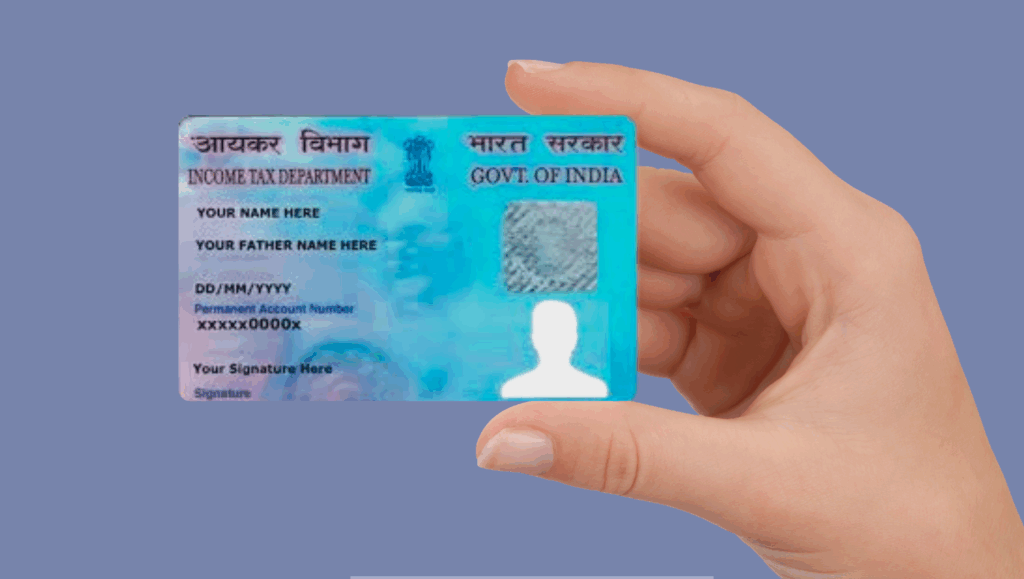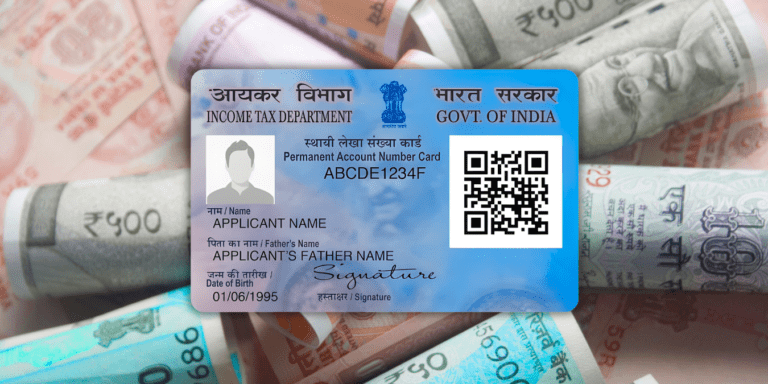
“Wondering if money deposited by parents in your NRO account is taxable in India? While NRO interest is taxable, deposits may not be—unless gift tax applies. Learn about RBI rules, ITR reporting, and tax exemptions for NRO accounts. Avoid penalties with expert insights!”
As a Non-Resident Indian (NRI), managing finances in India often involves navigating complex banking and tax regulations. One common query among NRIs is whether money deposited into a Non-Resident Ordinary (NRO) account by parents is taxable in India. While it’s widely known that interest earned on NRO accounts is taxable, the taxability of deposits, especially those made by parents, is less clear. In this detailed blog post, we’ll address this question with the latest information, backed by the Income Tax Act, 1961, Foreign Exchange Management Act (FEMA) guidelines, and expert insights as of April 2025. We’ll also explore related aspects like repatriation, Double Taxation Avoidance Agreements (DTAA), and actionable tips for NRIs to stay compliant while optimizing their tax liabilities.
This guide is crafted for NRIs, tax professionals, and anyone seeking clarity on NRO account taxation, NRI banking, and gift tax rules in India. Let’s dive in!
What is an NRO Account?
A Non-Resident Ordinary (NRO) account is a rupee-denominated bank account designed for NRIs to manage income earned in India, such as rent, dividends, pensions, or proceeds from the sale of property. Unlike a Non-Resident External (NRE) account, which is meant for foreign earnings and is tax-free in India, an NRO account is primarily for domestic income and is subject to specific tax implications.
Key Features of an NRO Account
- Currency: Indian Rupees (INR).
- Eligible Holders: NRIs, Persons of Indian Origin (PIOs), and Overseas Citizens of India (OCIs).
- Types: Savings, current, recurring, or fixed deposit accounts.
- Deposits: Can include Indian income (rent, dividends, etc.), foreign remittances, or gifts from residents or NRIs.
- Repatriation: Limited to USD 1 million per financial year, subject to tax compliance.
- Taxation: Interest earned is taxable at 30% (plus surcharge and cess), with Tax Deducted at Source (TDS) applied by banks.
Understanding these features is crucial to determining the tax implications of deposits made by parents into an NRO account.
Are Deposits into an NRO Account by Parents Taxable in India?
The taxability of money deposited into your NRO account by your parents depends on the nature of the deposit and the source of the funds. Let’s break it down:
1. Gifts from Parents (Blood Relatives)
In India, gifts from close relatives, including parents, are exempt from tax under Section 56(2)(x) of the Income Tax Act, 1961. This section states that any sum of money or property received without consideration (i.e., as a gift) from a relative is not taxable in the hands of the recipient, regardless of the amount.
Definition of Relative: As per the Income Tax Act, a “relative” includes parents, spouse, siblings, children, and lineal ascendants or descendants. Thus, if your parents deposit money into your NRO account as a gift, it is not taxable in India, provided it is genuinely a gift and not income routed through them.
Example:
- Your parents, who are resident Indians, gift you INR 10 lakhs and deposit it into your NRO account.
- This amount is exempt from tax in your hands because it’s a gift from a close relative.
- However, you must ensure proper documentation (e.g., a gift deed) to establish the transaction’s legitimacy if questioned by tax authorities.
2. Income Deposited on Your Behalf
If the money deposited by your parents represents your income (e.g., rent from your property, dividends from your investments, or other earnings collected by your parents on your behalf), it is taxable in India. The taxability depends on the type of income and your residential status as an NRI.
Key Point: For NRIs, only income earned or accrued in India is taxable. Examples include:
- Rental income from property in India.
- Dividends from Indian companies.
- Capital gains from the sale of assets like property or shares in India.
- Interest from fixed deposits or savings in an NRO account.
If your parents collect such income and deposit it into your NRO account, it will be taxed based on the applicable slab rates or specific rates (e.g., 30% for interest income). The fact that your parents deposited it does not change its taxability—it’s still your income.
Example:
- You own a property in India, and your parents collect INR 5 lakhs in rent on your behalf, depositing it into your NRO account.
- This rental income is taxable in India, typically at your applicable income tax slab rate, and you may need to file an income tax return if your total income exceeds INR 2.5 lakhs (basic exemption limit for FY 2024-25).
3. Foreign Remittances by Parents
If your parents are also NRIs or reside abroad and deposit money into your NRO account from a foreign source (e.g., their overseas bank account), the tax treatment depends on the nature of the funds:
- Gift: If it’s a gift, it’s exempt from tax in India under Section 56(2)(x), as parents are considered close relatives.
- Income: If the money represents income earned in India (e.g., your parents manage your Indian investments and deposit the proceeds), it’s taxable as per the nature of the income.
Additionally, for foreign remittances exceeding INR 50,000, banks may require documentation to comply with FEMA and anti-money laundering regulations. You may need to provide a declaration confirming the source of funds.
Is Interest Earned on NRO Accounts Taxable?
Yes, interest earned on NRO accounts is taxable in India, and this is a critical distinction from deposits. Here’s what you need to know:
- Tax Rate: Interest income is subject to TDS at 30% (plus applicable surcharge and 4% health and education cess), as per the Income Tax Act, 1961.
- TDS Deduction: Banks automatically deduct TDS on interest credited to your NRO account, and this is reflected in your Form 26AS.
- Filing Requirement: If your total income in India (including interest) exceeds INR 2.5 lakhs (basic exemption limit for FY 2024-25), you must file an income tax return in India. Even if your income is below this limit, filing a return may help you claim a refund for excess TDS deducted.
Example:
- Your NRO savings account earns INR 50,000 in interest annually.
- The bank deducts TDS at 30% (INR 15,000 plus cess).
- If you have no other income in India and your total income is below INR 2.5 lakhs, you can file a tax return to claim a refund, as the basic exemption limit applies.
Double Taxation Avoidance Agreement (DTAA)
To mitigate the burden of double taxation (paying tax in India and your country of residence), India has signed DTAA with over 90 countries. Under DTAA, NRIs can:
- Avail a lower TDS rate (typically 10-15%, depending on the treaty) by submitting a Tax Residency Certificate (TRC) and Form 10F to the bank.
- Claim a foreign tax credit in their country of residence for taxes paid in India.
For instance, if you’re an NRI in the USA, you can submit the required documents to reduce TDS on NRO interest from 30% to 15% under the India-USA DTAA. Always consult a tax advisor to ensure compliance with DTAA provisions.
Repatriation of Funds from an NRO Account
If you plan to transfer the money deposited by your parents (or interest earned) to your overseas account, you must comply with FEMA regulations. Key points:
- Limit: You can repatriate up to USD 1 million per financial year from an NRO account, inclusive of all sources (principal and interest), after paying applicable taxes.
- Documentation: You need a Chartered Accountant’s certificate (Form 15CA/CB) confirming that taxes on the repatriated amount have been paid or are not applicable.
- Process: Submit the certificate to your bank, along with a repatriation request. The process typically takes 7-10 business days.
Tax Implication on Repatriation:
- If the deposit is a tax-exempt gift from your parents, the principal amount is not taxed upon repatriation.
- If the deposit is taxable income (e.g., rent or dividends), ensure taxes are paid before repatriation.
- Interest earned is always taxable, and TDS is deducted before repatriation.
Practical Scenarios and Tax Implications
Let’s explore common scenarios to clarify the tax treatment of deposits and interest:
Scenario 1: Gift from Resident Parents
- Situation: Your parents, resident in India, deposit INR 20 lakhs into your NRO account as a gift.
- Tax on Deposit: Exempt under Section 56(2)(x) as it’s from a close relative.
- Tax on Interest: If the INR 20 lakhs earns INR 1 lakh in interest, TDS at 30% (plus cess) applies. You can claim a refund if your total income is below the exemption limit.
- Repatriation: The INR 20 lakhs (principal) can be repatriated within the USD 1 million limit, with no tax on the principal. Interest is repatriable after TDS.
Scenario 2: Rental Income Deposited by Parents
- Situation: Your parents collect INR 6 lakhs in rent from your property and deposit it into your NRO account.
- Tax on Deposit: The rent is taxable as “Income from House Property” at your applicable slab rate (or 30% if opting for the old tax regime without deductions).
- Tax on Interest: Interest earned on the INR 6 lakhs is taxable at 30% TDS.
- Repatriation: The rent (after tax payment) and interest (after TDS) can be repatriated within the USD 1 million limit.
Scenario 3: Foreign Gift from NRI Parents
- Situation: Your NRI parents in the UK deposit USD 50,000 (converted to INR) into your NRO account as a gift.
- Tax on Deposit: Exempt under Section 56(2)(x) as a gift from a relative.
- Tax on Interest: Interest earned is taxable at 30% TDS.
- Repatriation: The principal (USD 50,000 equivalent) is repatriable without tax, subject to the USD 1 million limit. Interest is repatriable after TDS.
Tips for NRIs to Manage NRO Accounts Efficiently
- Maintain Proper Documentation:
- For gifts, keep a gift deed or written confirmation from your parents to avoid scrutiny.
- For income deposits, maintain records of the income source (e.g., rent agreements, dividend statements).
- Leverage DTAA Benefits:
- Submit a TRC, Form 10F, and a self-declaration to your bank to reduce TDS on interest.
- Claim foreign tax credits in your country of residence to offset taxes paid in India.
- File Income Tax Returns:
- If your Indian income exceeds INR 2.5 lakhs, file a return to report income and claim TDS refunds.
- Even if income is below the threshold, filing can help recover excess TDS.
- Comply with FEMA for Repatriation:
- Engage a Chartered Accountant to obtain Form 15CA/CB for repatriation.
- Ensure taxes are cleared before transferring funds abroad.
- Monitor TDS Deductions:
- Check your Form 26AS annually to verify TDS deducted by the bank.
- Address discrepancies with your bank promptly.
- Consult a Tax Advisor:
- Tax laws and DTAA provisions can be complex. A professional can help optimize your tax liability and ensure compliance.
Latest Updates for FY 2024-25 (AY 2025-26)
As of April 2025, here are the key updates relevant to NRO accounts and NRI taxation:
- Basic Exemption Limit: Remains INR 2.5 lakhs for NRIs under the old tax regime and INR 3 lakhs under the new tax regime (Finance Act, 2023).
- TDS Rates: No change in the 30% TDS rate on NRO interest, but NRIs can continue to avail DTAA benefits for lower rates.
- FEMA Guidelines: The USD 1 million repatriation limit per financial year remains unchanged, with stricter scrutiny on source-of-funds documentation.
- Digital Filing: The Income Tax Department has enhanced e-filing portals, making it easier for NRIs to file returns and track TDS via the Annual Information Statement (AIS).
Common Misconceptions About NRO Account Taxation
- Myth: All deposits into an NRO account are taxable.
- Fact: Gifts from close relatives, like parents, are tax-exempt. Only income deposits (e.g., rent, dividends) are taxable.
- Myth: Interest on NRO accounts is tax-free for NRIs.
- Fact: Interest is taxable at 30% TDS, unlike NRE accounts, which are tax-free.
- Myth: Repatriation is tax-free.
- Fact: While the principal (e.g., gifts) may be tax-free, income and interest are taxable, and taxes must be cleared before repatriation.
Manage Your NRO Account Efficiently?
To summarize, money deposited into your NRO account by your parents is not taxable in India if it’s a gift, as gifts from close relatives are exempt under Section 56(2)(x). However, if the deposit represents your income (e.g., rent, dividends), it is taxable based on the income type. Interest earned on the NRO account is always taxable at 30% TDS, but NRIs can reduce their tax burden through DTAA benefits and claim refunds by filing tax returns.
For NRIs, managing an NRO account requires careful planning to ensure compliance with tax and FEMA regulations. By maintaining proper documentation, leveraging DTAA, and consulting tax professionals, you can optimize your financial strategy while staying compliant. If you’re unsure about your specific situation, reach out to a Chartered Accountant or visit the Income Tax Department’s website (www.incometax.gov.in) for personalized guidance.
-

8th Pay Commission Breaking: 5 Promotions, OPS Back, CGHS ₹20K – What Staff Bodies Want Now
-

Thousands of Widows and Disabled Pensioners Now Eligible for Free Treatment — What Changed Under PM-JAY?
-

Saudi Arabia Bans Poultry & Egg Imports From 40 Countries — Is India on the List?
-

RBI Approves SBI Mutual Fund’s 9.99% Stake in Bandhan Bank —And Why It’s Not a Coincidence





























